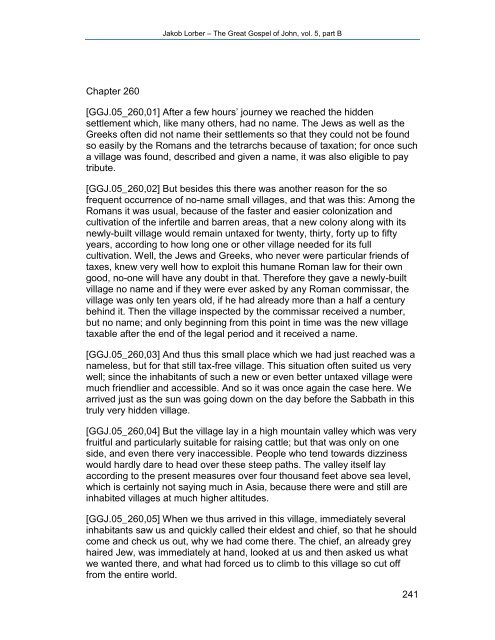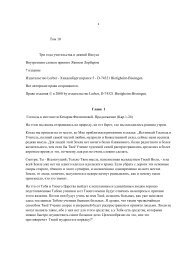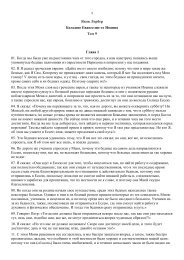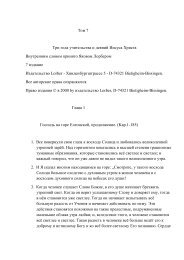GGJ5b
You also want an ePaper? Increase the reach of your titles
YUMPU automatically turns print PDFs into web optimized ePapers that Google loves.
Jakob Lorber – The Great Gospel of John, vol. 5, part B<br />
Chapter 260<br />
[GGJ.05_260,01] After a few hours‘ journey we reached the hidden<br />
settlement which, like many others, had no name. The Jews as well as the<br />
Greeks often did not name their settlements so that they could not be found<br />
so easily by the Romans and the tetrarchs because of taxation; for once such<br />
a village was found, described and given a name, it was also eligible to pay<br />
tribute.<br />
[GGJ.05_260,02] But besides this there was another reason for the so<br />
frequent occurrence of no-name small villages, and that was this: Among the<br />
Romans it was usual, because of the faster and easier colonization and<br />
cultivation of the infertile and barren areas, that a new colony along with its<br />
newly-built village would remain untaxed for twenty, thirty, forty up to fifty<br />
years, according to how long one or other village needed for its full<br />
cultivation. Well, the Jews and Greeks, who never were particular friends of<br />
taxes, knew very well how to exploit this humane Roman law for their own<br />
good, no-one will have any doubt in that. Therefore they gave a newly-built<br />
village no name and if they were ever asked by any Roman commissar, the<br />
village was only ten years old, if he had already more than a half a century<br />
behind it. Then the village inspected by the commissar received a number,<br />
but no name; and only beginning from this point in time was the new village<br />
taxable after the end of the legal period and it received a name.<br />
[GGJ.05_260,03] And thus this small place which we had just reached was a<br />
nameless, but for that still tax-free village. This situation often suited us very<br />
well; since the inhabitants of such a new or even better untaxed village were<br />
much friendlier and accessible. And so it was once again the case here. We<br />
arrived just as the sun was going down on the day before the Sabbath in this<br />
truly very hidden village.<br />
[GGJ.05_260,04] But the village lay in a high mountain valley which was very<br />
fruitful and particularly suitable for raising cattle; but that was only on one<br />
side, and even there very inaccessible. People who tend towards dizziness<br />
would hardly dare to head over these steep paths. The valley itself lay<br />
according to the present measures over four thousand feet above sea level,<br />
which is certainly not saying much in Asia, because there were and still are<br />
inhabited villages at much higher altitudes.<br />
[GGJ.05_260,05] When we thus arrived in this village, immediately several<br />
inhabitants saw us and quickly called their eldest and chief, so that he should<br />
come and check us out, why we had come there. The chief, an already grey<br />
haired Jew, was immediately at hand, looked at us and then asked us what<br />
we wanted there, and what had forced us to climb to this village so cut off<br />
from the entire world.<br />
241
















